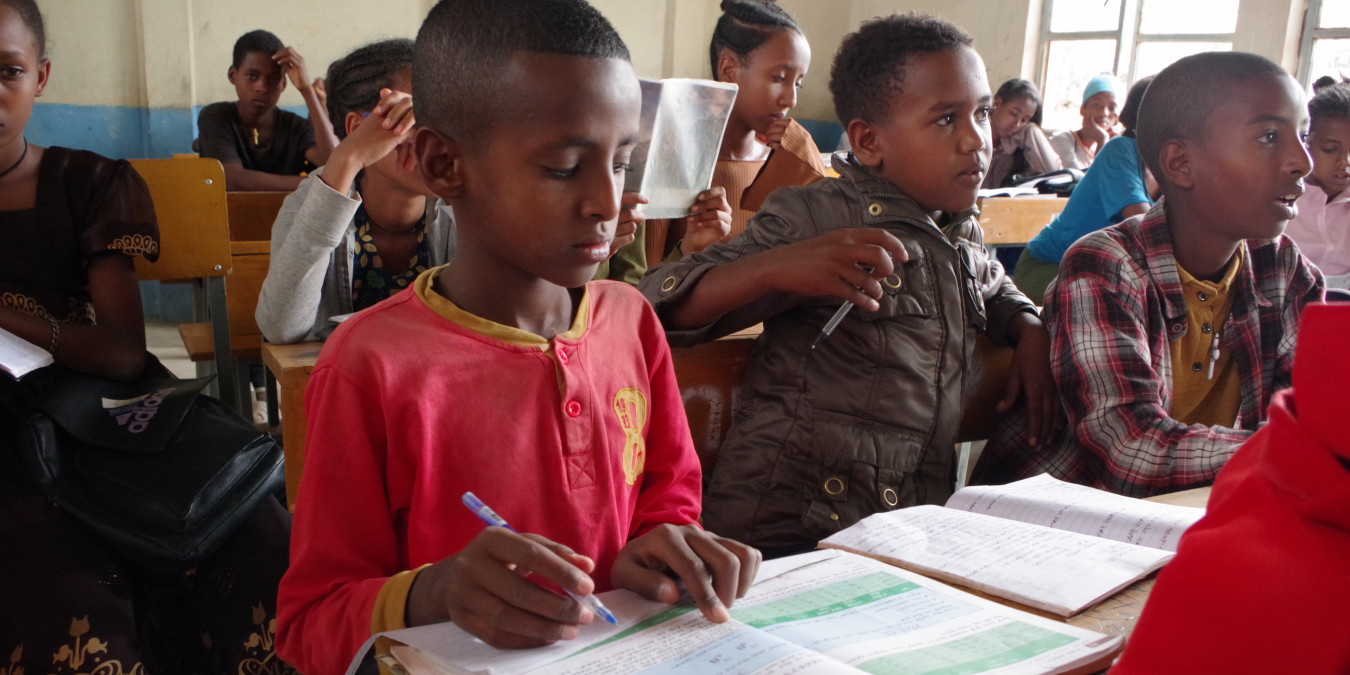Returning Happiness to Tigray's Classrooms
Published: Jul 25, 2024 Reading time: 4 minutes Share: Share an articleIn 2020, fighting erupted between the Ethiopian government and Tigrayan forces. The war lasted for two years. During this time, over 50% of the schools in Tigray were closed, leaving more than 1 million children out of school. We are currently working to rehabilitate damaged schools. It thrills us to see that the children are delighted to return to school.

Genet Gebru, a 16-year-old student, lives in Abi-Adi. She faced emotional trauma and unhappiness after her mother passed. The loss of her mother led Genet to frequent absences from school. Recognising her academic potential, her teachers provided support and encouragement to help her attend school regularly. She now lives with her sister.
Genet has a strong passion for the English language and dreams of becoming either a pilot or a civil servant; thus, she was profoundly despondent when the war forced her school to close. She cherishes school and felt devastated, as it robbed her of her joy and sense of purpose.
Many schoolchildren have been deeply troubled by seeing their schools damaged or closed. According to the Tigray Regional Education Bureau, as of the end of April 2023, more than half of the schools remained closed due to damage caused during the war, and they were used by internally displaced persons (IDPs) and military personnel. As a result, 1,042,807 children have been affected.
After the war, there was some support from humanitarian organisations and the regional government they provided exercise books, stationery, school bags, and recreational kits. However, to address the missed education during the war, UNICEF and the regional education bureau implemented an accelerated school calendar, enabling students to complete three grades in a single academic year.
We provide children with educational materials, teaching aids, and science kits. When we provided these to Genet, her face lit up with joy.
We responded to the needs of students in two districts: Abi-Adi and Kola Tembeyin. In these districts, 49 schools have been demaged, nearly 26,000 students requiring school supplies. The schools also require maintenance and rehabilitation. We focused on providing clean water and improving access and built school latrines.
We chose four schools (Ady-Gidy, Lisanu, Guroro, and Bega Shega schools) and conducted building maintenance, supplied school desks and chairs, and installed blackboards.
It is not easy to inspire students under these circumstances
Atsede Gebregiorgis has been teaching at Adi Gidi Primary School for ten years. At this school, the teachers persevered in their teaching duties despite being unpaid for 17 months. Atsede noted that the school was among the leading institutions in the area to introduce English lessons using mobile phones, and their students achieved excellent academic results. However, everything was disrupted by the war.
The trauma and psychological strain caused by the war have profoundly affected the children, leading to feelings of hopelessness, emotional instability, and nervousness. Atsede also observed that some of the students are distressed and emotionally volatile, with some even engaging in arguments with teachers.
Atsede noted that many students were absent or stayed out of school following the war. Most of them cited a lack of school supplies that their parents couldn't afford to buy. Some students came to school on empty stomachs and some even fainted from hunger, and teachers had to comfort them and provide water.
Following the distribution of educational supplies, school attendance rates are on the rise, but more support is still needed.
For girls, sanitary pads and underwear are essential items in high demand. Atsede noted: "Female students in our schools struggle to afford sanitary pads and underwear, and we are seeking support from donors to provide these essential items."
Thanks to funds from Club of Friends and our local partner HOP, we have been able to bring smiles back to the classroom. Genet is thrilled to return to school following the war.
"Our schools have been rehabilitated. Classes have resumed, and I am delighted," says Genet enthusiastically, proudly displaying the bags she received from PIN.



